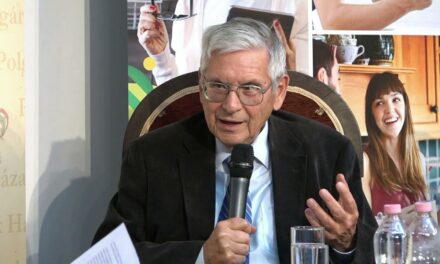The parliamentary election, which brought the serious fall of the left and the fourth 2/3 victory of Fidesz-KDNP, was barely over, and the parties of the left alliance have already fallen against each other. The messaging started that evening and has continued ever since.
Since the elections, there hasn't been a day that Péter Jakab, the president of Jobbik, doesn't verbally kick Péter Márki-Zay, and Ferenc Gyurcsány does the same, who in his Saturday evaluation went so far as to declare that the left would have won with Klára Dobrev. Of course, Péter Márki-Zay could not leave this without a word either and – adding that he covertly debolsheviked the DK – he stated that he would not have had a chance to cooperate with any left-wing candidate. And he's probably right about that. The reasons for the historic defeat for them and the historic victory for Fidesz-KDNP can be dissected at length here, but the most important thing is that
the majority of people were satisfied with the Fidesz-KDNP government over the past 4, 8 and 12 years. So the most important premise is that the voters wanted Viktor Orbán to continue the work.
Against 3,50,000 votes, a well-mobilized and accessible left would not have been able to do anything. After all, they actually measured the public mood incorrectly. They appealed to an anti-Orbán hatred that simply does not exist. They envisioned an anti-Orbán, disillusioned with Fidesz voter block of hundreds of thousands, even millions, which does not exist. That is why it is also false when Momentum will not be there at the opening session of the Parliament and when Péter Juhász (perhaps the name of the dear reader still looms large from the leader of the micro-party called Együtt) talks about the need to organize resistance outside the Parliament. The only question is, what kind of resistance?
Resistance to what? Against a better life, higher wages, family allowances, or utility cuts?
Moreover, anyone who talks about politics outside the Parliament is also spitting in the face of their own voters, who voted for these parties, for these people, to represent them in the House of Commons. Of course, let's also quietly add: so far, not a single Momentumos future father-in-law has spoken about the fact that if he does not want to work in the Parliament, he will not take his salary and the additional benefits associated with representation.
But let's get back to the question of satisfaction! Because it is clear that in the last four years anyone who wanted to was able to move forward in this country, and this was faithfully reflected in the election slogan of the governing parties: Let's go forward, not back! Of course, this also applied to not letting the figures of the past return to power. And people understood that. They were satisfied with the government and did not want Ferenc Gyurcsány again. That's why the president of DK is not right when he says: They would have won with Klára.
No, with Klára, they could easily have failed even more.
We will never know this, but it is certain that Ferenc Gyurcsány has no intention of stepping back, although according to his words, he is very bored of Gyurcsány. I have some bad news for him: the shame of 2006 is so ingrained in Hungarian society that while the world is the world, the name Gyurcsány will be associated with it by the voters. As a responsible person committed to his own political community, he should also see this and could even withdraw for the sake of the left. However, the desire for power seems to surpass everything and not only with him, but also with other actors of the left. Of course, as long as they are hanging on, Fidesz governs – fortunately still enjoying the trust of the people.
Source: Vasarnap.hu
Photo: Balázs Mohai/MTI













